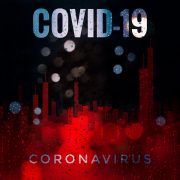Self-Directed IRA Private Lending
What is Self-Directed IRA Private Lending?
One of the many lesser known but lucrative ways to benefit from your Self-Directed IRA is through private lending. Perhaps the best “alternative asset” to is providing others with the capital to make major purchases such as real estate. Instead of a bank collecting the interest, the Self-Directed IRA makes this profit. Many loans made by Self-Directed IRAs are for purchasing real estate. Some people who may be creditworthy but still are unable to secure financing from a bank will look for other sources for loans. They might not really be such bad risks, but since banks have tightened up their guidelines, such individuals will have to find alternative sources for financing. Some examples of these people who may be unable to qualify for traditional loans are the self-employed or those who earn their income from commissions. However, it is vitally important to do your own due diligence into the potential borrower. Once you determine this person is an acceptable risk, you can proceed with the transaction.
The Self-Directed IRA holder can select the borrower, interest rate, security (which may be real estate, businesses or another asset you agree on) as well as all other terms of the loan such as length and frequency of payment. Like all investments, there is a risk to Self-Directed IRA Lending. The borrower may have not been able to arrange for financing due to legitimate reasons such his credit history, and possibly be unable or unwilling to pay. Should the worst happen, and the borrower fail to honor his/her commitment, you will still have the agreed-upon security to fall back on. If you are willing to take a potentially serious chance in exchange for more income, you can provide an unsecured loan. This will usually generate a higher interest rate, but it can also represent a serious risk because it is not backed by any collateral.
Another type of borrower could be more an entity which wants to raise capital while using a promissory note with company stock as the collateral. The risk to you with this type of secured note is that the value of the collateral is directly impacted by the success or the failure of the company that has issued the note
Benefits of Self-Directed IRA Private Lending
The benefits of Self-Directed IRA Lending are many and varied. Some of these advantages are another way to diversify your investments and create a pre-established return on your money. The loan’s principal and interest payments provide a steady, secure income stream to your Self-Directed IRA. You are essentially investing in both the borrower and the asset pledged as security, since this is ultimately available in the event of a default on the loan.
Another significant advantage of private lending with a Self-Directed IRA comes at tax time. Profits from this lending still benefit from all of an IRA. All gains from this type of investment are tax-deferred until a distribution is taken from your Self-Directed IRA. An additional advantage of a Self-Directed IRA is the ability to adjust the timing of these distributions if you have more than one retirement account, as long as you remove enough funds in total. The distributions from your retirement accounts are not required until the IRA owner reaches the age of 70 1/2. Even better, if you have a Self-Directed Roth IRA, these profits are tax-free permanently.
Regulations of Self-Directed IRA Private Lending
The first essential regulation regarding IRA lending is that it must be a Self-Directed IRA. One of the principal regulations regarding Self-Directed IRA Lending must already be in place. The IRA is a separate legal entity and not your personal finances. All of the necessary paperwork involved with lending money from your Self-Directed IRA will have its own legal name. It is the IRA itself, and not you, who is making the loan. Therefore, all income produced from this transaction goes directly into the Self-Directed IRA.
Another rule for private lending from your Self-Directed IRA is that the loan must be for a real economic transaction. Additionally, funds from a Self-Directed IRA can only be lent to a “non-disqualified person.” Certain family members are disqualified people. They include you, your spouse, parents, grandparents, children, etc. However, other relatives such as siblings, cousins, nieces and nephews, as well as aunts and uncles are non-disqualified people.
For more information on Self-Directed IRAs, call us today at 866-7500-IRA (472) or visit us at www.AmericanIRA.com.





